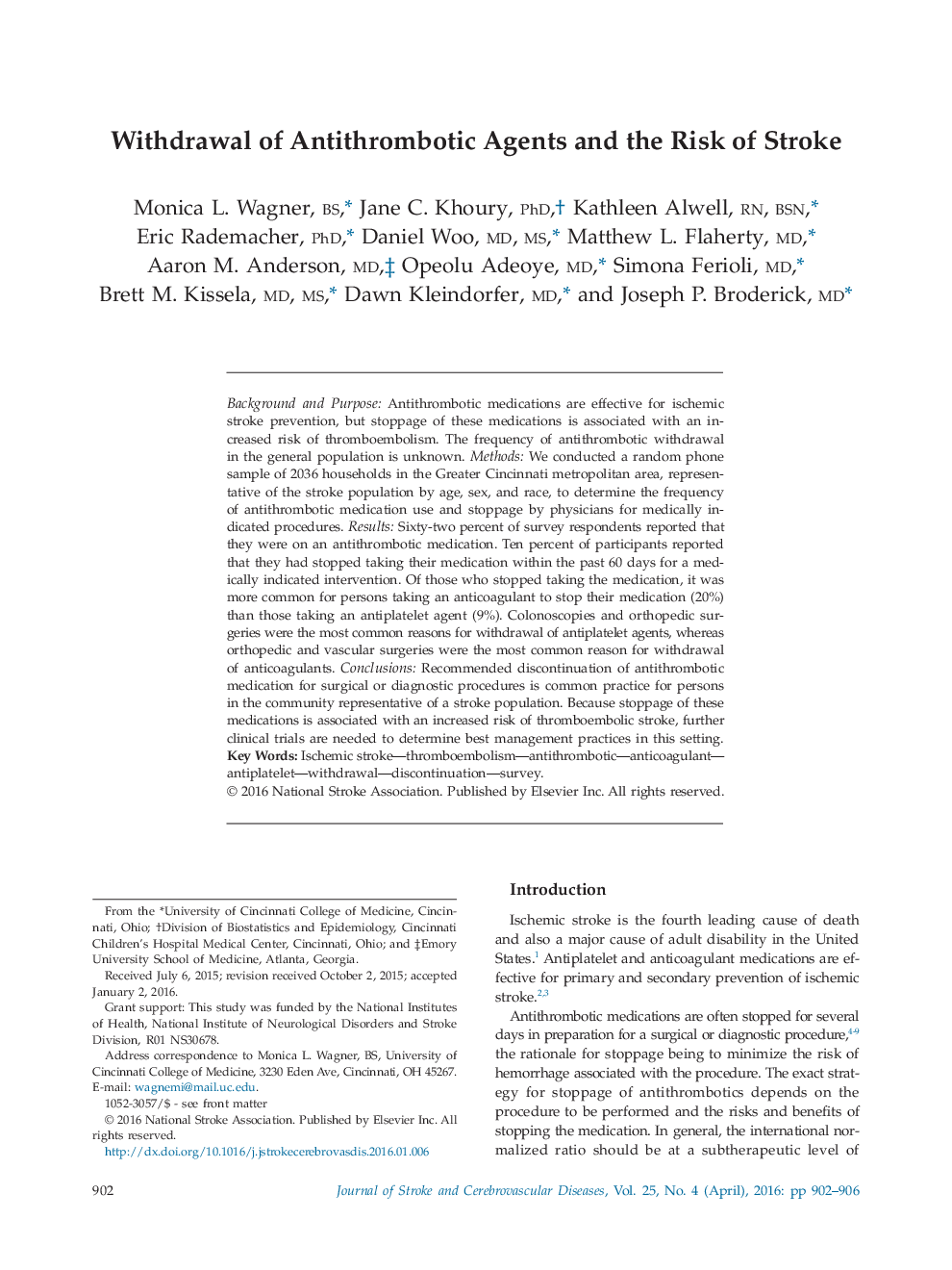| Article ID | Journal | Published Year | Pages | File Type |
|---|---|---|---|---|
| 2701624 | Journal of Stroke and Cerebrovascular Diseases | 2016 | 5 Pages |
Background and PurposeAntithrombotic medications are effective for ischemic stroke prevention, but stoppage of these medications is associated with an increased risk of thromboembolism. The frequency of antithrombotic withdrawal in the general population is unknown.MethodsWe conducted a random phone sample of 2036 households in the Greater Cincinnati metropolitan area, representative of the stroke population by age, sex, and race, to determine the frequency of antithrombotic medication use and stoppage by physicians for medically indicated procedures.ResultsSixty-two percent of survey respondents reported that they were on an antithrombotic medication. Ten percent of participants reported that they had stopped taking their medication within the past 60 days for a medically indicated intervention. Of those who stopped taking the medication, it was more common for persons taking an anticoagulant to stop their medication (20%) than those taking an antiplatelet agent (9%). Colonoscopies and orthopedic surgeries were the most common reasons for withdrawal of antiplatelet agents, whereas orthopedic and vascular surgeries were the most common reason for withdrawal of anticoagulants.ConclusionsRecommended discontinuation of antithrombotic medication for surgical or diagnostic procedures is common practice for persons in the community representative of a stroke population. Because stoppage of these medications is associated with an increased risk of thromboembolic stroke, further clinical trials are needed to determine best management practices in this setting.
